Related Research Articles
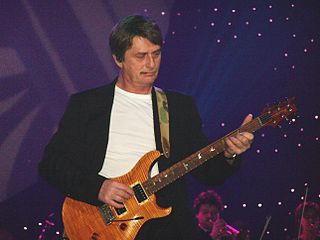
Michael Gordon Oldfield is an English musician, songwriter, and producer best known for his debut studio album Tubular Bells (1973), which became an unexpected critical and commercial success. Though primarily a guitarist, Oldfield plays a range of instruments, which includes keyboards and percussion, as well as vocals. He has adopted a range of musical styles throughout his career, including progressive rock, world, folk, classical, electronic, ambient, and new age music.

Tubular bells (also known as chimes) are musical instruments in the percussion family. Their sound resembles that of church bells, carillon, or a bell tower; the original tubular bells were made to duplicate the sound of church bells within an ensemble. Each bell is a metal tube, 30–38 mm (1+1⁄4–1+1⁄2 in) in diameter, tuned by altering its length. Its standard range is C4–F5, though many professional instruments reach G5. Tubular bells are often replaced by studio chimes, which are a smaller and usually less expensive instrument. Studio chimes are similar in appearance to tubular bells, but each bell has a smaller diameter than the corresponding bell on tubular bells.
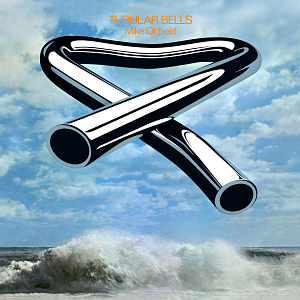
Tubular Bells is the debut studio album by the British musician Mike Oldfield, released on 25 May 1973 as the first album on Virgin Records. It comprises two mostly instrumental tracks. Oldfield, who was 19 years old when it was recorded, played almost all the instruments.

Tubular Bells II is the fifteenth studio album by English guitarist and songwriter Mike Oldfield. It was released on 31 August 1992 by Warner Music UK and is the successor to his debut album Tubular Bells (1973). After his contract with Virgin Records ended at the end of 1991, Oldfield signed with Warner and started work on a sequel to Tubular Bells. The album charted at number 1 in the UK as did its precursor. It is Oldfield's third number-one album.

Tubular Bells 2003 is the 22nd studio album by English musician Mike Oldfield, released on 27 May 2003 by Warner Music Spain. It is a digital re-recording of his 1973 album Tubular Bells, released almost 30 years earlier. This is the final album in the Tubular Bells series.

The Songs of Distant Earth is the sixteenth studio album by English musician, songwriter and producer Mike Oldfield, released on 21 November 1994 by WEA. It is a concept album based on the 1986 science fiction novel The Songs of Distant Earth by Arthur C. Clarke. The album reached No. 24 on the UK Albums Chart.

Hergest Ridge is the second studio album by English musician and songwriter Mike Oldfield, released on 2 September 1974 by Virgin Records. The unexpected commercial and critical success of his debut album, Tubular Bells (1973), affected Oldfield, who decided against touring and avoided the press with his newfound fame. Instead, he retreated to Hergest Ridge on the England–Wales border and wrote the follow-up, which he recorded in 1974 at The Manor in Oxfordshire, with Tom Newman returning as co-producer. Similar to Oldfield's first, the album is a single composition split into two parts covering different moods and musical styles.

Ommadawn is the third studio album by English musician, multi-instrumentalist and songwriter Mike Oldfield, released on 3 November 1975 on Virgin Records.

Incantations is the fourth studio album by English musician, songwriter, and producer Mike Oldfield, released on 1 December 1978 by Virgin Records. Following the release of his previous album Ommadawn (1975), Oldfield moved into a new home in Bisley, Gloucestershire, where he set up a new recording studio. He started on a follow-up in 1977 which took form as a double album with one, side-long track on each side of the LP record. Oldfield wished to use real incantations in the music, but ended up using folklore as a loose running theme, such as Dianna the Huntress. Though primarily instrumental, lyrical sections are adapted from works by poets Henry Longfellow and Ben Jonson. Oldfield completed the self-awareness seminar Exegesis while recording Incantations.

Platinum is the fifth studio album by English multi-instrumentalist and songwriter Mike Oldfield, released on 23 November 1979 on Virgin Records. It was Oldfield's first album to include shorter songs and music written by others. A modified version of the album was released in the United States and Canada and titled Airborn.

Amarok is the thirteenth studio album by English multi-instrumentalist and songwriter Mike Oldfield, released in May 1990 by Virgin Records. Oldfield originally conceived it as an "angry protest album", showcasing his musical technique. It is presented as a single sixty-minute track of continuous, uninterrupted but constantly changing music.
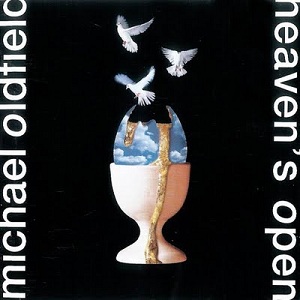
Heaven's Open is the 14th record album performed by Mike Oldfield, released in 1991. It was his last album on Virgin, and also the only album he released under the name Michael Oldfield, instead of Mike Oldfield. The producer of the album, Tom Newman's name is also spelled out in a similar manner, as Thom Newman.
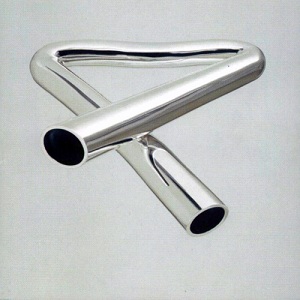
Tubular Bells III is the eighteenth studio album by English guitarist, songwriter, and producer Mike Oldfield. It was released on 31 August 1998 by Warner Music UK as the third instalment in his Tubular Bells album series. After relocating from England to the Spanish island of Ibiza in 1996, Oldfield started work on the album and gained inspiration to incorporate electronic music from the island's local bars and clubs.

The Henry Cow Legend is the debut album of British avant-rock group Henry Cow. It was recorded at Virgin Records' Manor studios over three weeks in May and June 1973, mixed in July 1973, and released in September 1973.
Thomas Dennis Newman is an English record producer and musician. In 1970 he began working with Richard Branson and helped to found The Manor Studio in Oxford for the nascent Virgin Records. There he produced the recording of Mike Oldfield's Tubular Bells.

The Manor Studio was a recording studio in the manor house at the village of Shipton-on-Cherwell in Oxfordshire, England, north of the city of Oxford.
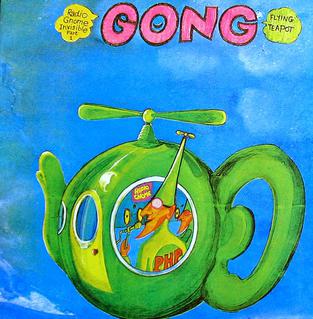
Flying Teapot is the third studio album by the progressive rock band Gong, originally released by Virgin Records in May 1973. It was the second entry in the Virgin catalogue (V2002) and was released on the same day as the first, Mike Oldfield's Tubular Bells (V2001). It was re-issued in 1977, with different cover art, by BYG Actuel in France and Japan. Recorded at Virgin's Manor Studios, in Oxfordshire, England, it was produced by Giorgio Gomelsky and engineered by "Simon Sandwitch 2 aided by Tom Zen".

"Mike Oldfield's Single " is the debut single by the English musician Mike Oldfield, released in 1974.

Boxed is a 1976 compilation album of music written and performed by Mike Oldfield. It features four channel quadraphonic remix versions of his first three albums:Tubular Bells, Hergest Ridge and Ommadawn. An additional fourth LP contains new musical collaborations with other artists.
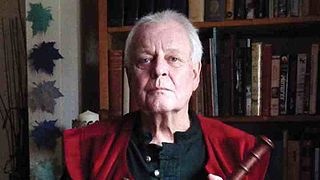
Les Penning is a British folk musician and composer, best known for his work with Mike Oldfield on the album Ommadawn and several of Oldfield's singles. He is credited with introducing Oldfield to medieval music through their time playing together at Penrhos Court. He has worked with many other artists, playing woodwind, as producer or as recording engineer, and has created radio drama for BBC Hereford and Worcester and music for two S4C television series: Gwyddion and an adaption by Gareth Miles of the William John Griffith novel Storïau'r Henllys Fawr.In 1978 he was a musician and performer on the BBC adaption of ‘Kilvert’s Diary’
References
- 1 2 Newton, Karen Chapman (2 May 2018). "OUR FIRST TM2 INTERVIEW – THE MAN WHO BROUGHT YOU TUBULAR BELLS". The Moorlander. Retrieved 4 October 2021.
- 1 2 Angus, Janet (May 1986). "Promoting the Soundtrack: Simon Heyworth". Sound on Sound. Retrieved 4 October 2021– via Muzines.co.uk.